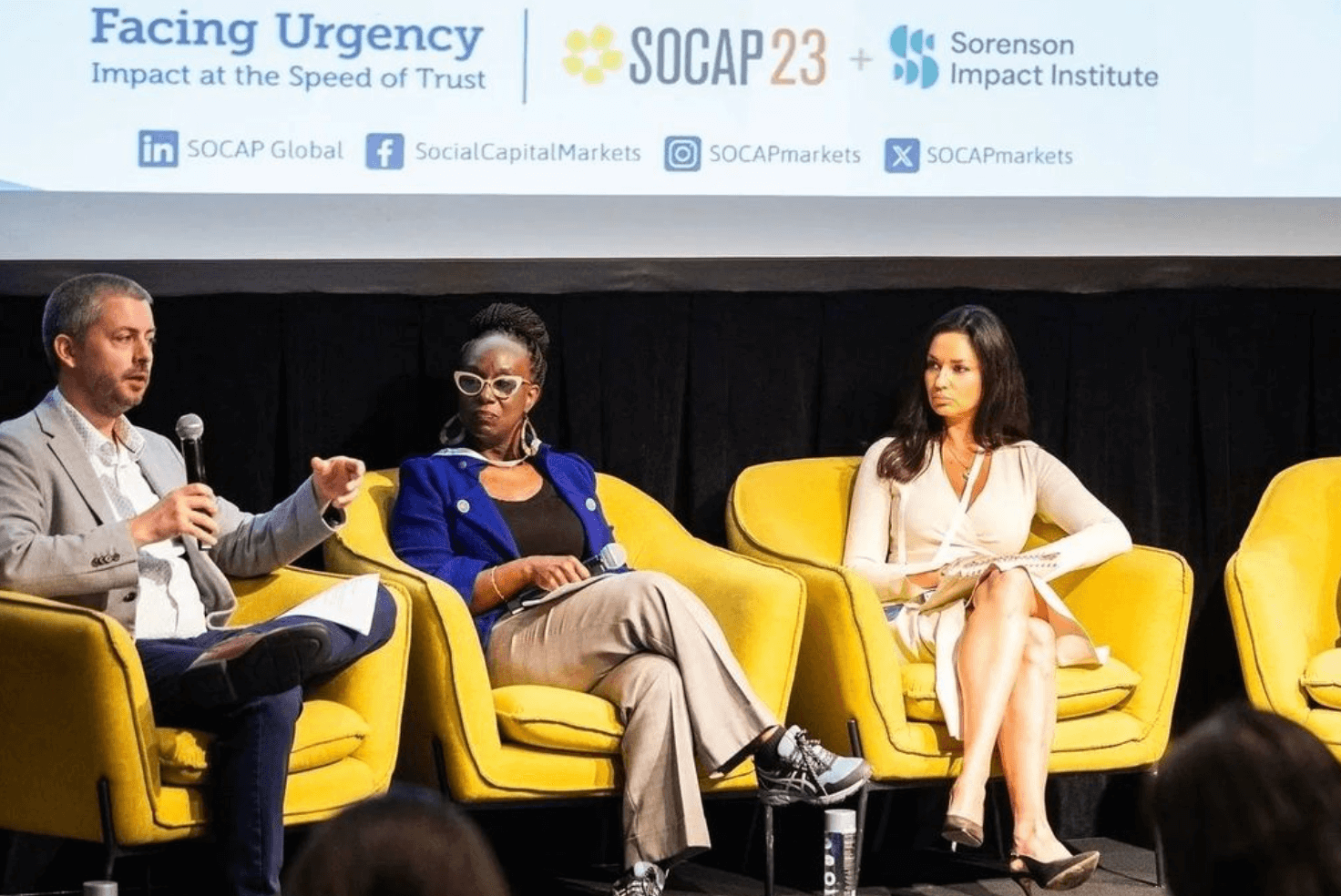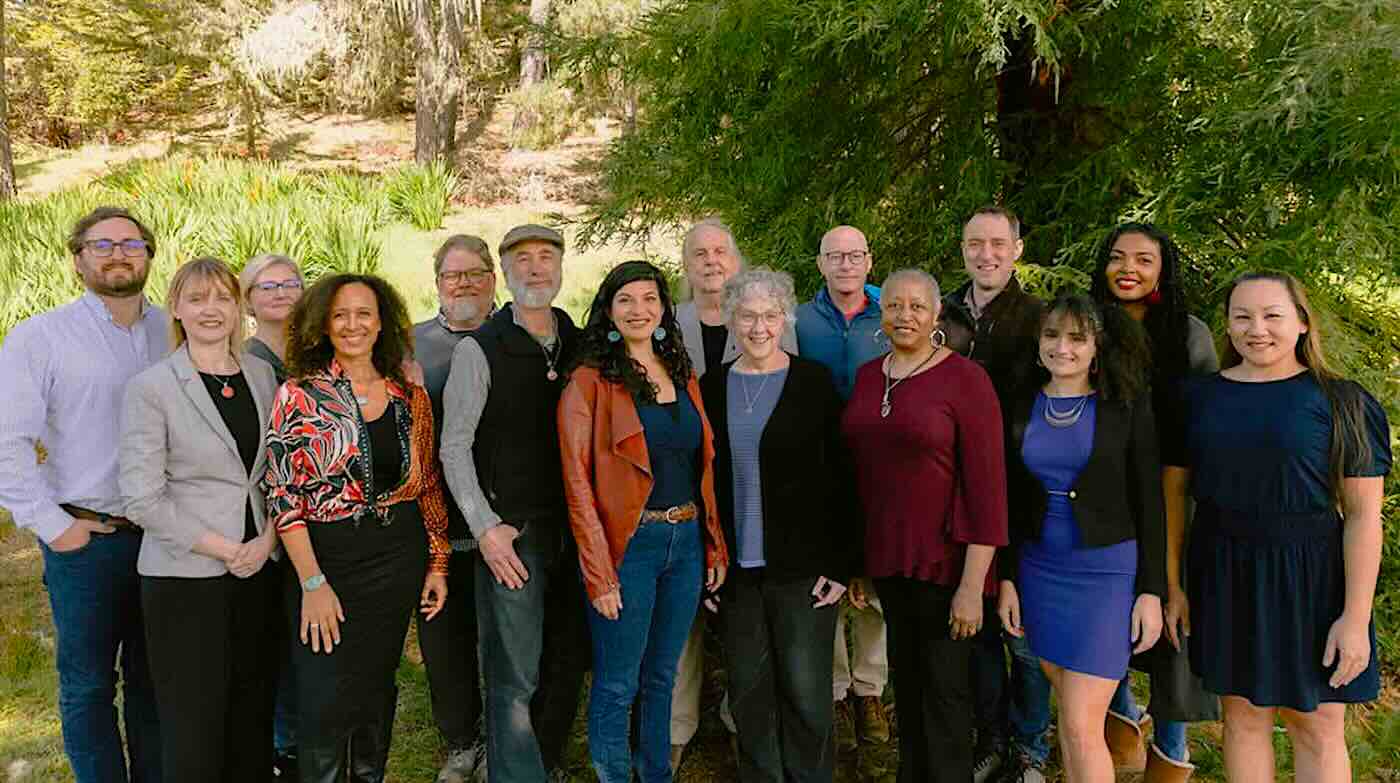This essay is adapted from Marjorie Kelly’s forthcoming book, “Wealth Supremacy: How the Extractive Economy and the Biased Rules of Capitalism Drive Today’s Crises.” Part Two of this essay will focus on pathways to the next system.
After more than 30 years as a journalist, theorist, and consultant working for progressive business and investing, I’ve become discouraged.
We’re losing ground faster than we’re gaining it. I’ve had the good fortune to work with and write about thousands of visionaries building a more democratic economy. But I’ve come to see that it’s not enough to build the positive: the new impact funds, B Corporations, CDFIs, public banks, and the rest. The failure of our work is inevitable, until we challenge the paradigm of capital extraction and wealth supremacy that is destroying work, democracy, and our living world.
At the heart of extractive capitalism is the myth of wealth maximization—the idea that no amount of wealth is ever enough. It’s taught in business schools as a kind of commandment: the purpose of management is maximizing returns to shareholders. In investing, the myth is expressed as creating maximum, risk-adjusted returns. If this aim seems natural and benign at the level of the individual portfolio, in the aggregate its results become insidious.
Economists have warned for decades of the dangers of financialization: the reality that there is too much financial wealth in our world. This problem is as massive as climate change, but invisible in the public discourse. The damages inflicted by financial extraction include the crisis of families trapped by predatory lending and unsustainable debt, the stifling of small and medium-size businesses that create jobs, dark money’s attack on democracy, and our addiction to limitless growth.
Challenging assumptions
When I was a kid in the 1950s, financial assets in the US were roughly equal to GDP. Today, financial assets are an intolerable five times GDP. Yet the system remains intent on maximum, perpetual growth of financial wealth. Even among impact investors—the most radical among ethical investors—two-thirds say they seek “market rate” returns. Implicitly, we’re saying the status quo must not change; financial income must never suffer, even if extraction is the very force advancing ecological crisis and worker suffering.
A big part of the problem is how the system has forced those of us working for change to keep our discourse inside the paradigm – to speak its language rather than challenging its assumptions.
Environmental consultants to corporations are reluctant to say ecosystems matter because life matters. They emphasize how sustainability practices impact risk, cost savings, and brand positioning and thus can improve the bottom line. Corporate social responsibility (CSR) leaders and ethics officers speak of how good practices protect reputation and enhance profits.
I’ve been part of various corporate whisperer communities for decades. I cofounded Business Ethics magazine in 1987 because I believed good businesspeople could change the world, and I met many trying to do so. As I interviewed company founders and leaders in CSR, sustainability, ethics, and responsible investing, I heard often about the struggle to make the business case, to speak the lingua franca of the system, trying to convince it to change.
I penned a 2004 piece titled, “Holy Grail Found: Absolute, Definitive Proof CSR Pays Off.” Reviewing findings from two massive metastudies, I wrote that “thirty years and 112 studies later,” it had been proven: CSR goes hand in hand with financial outperformance.
That was nearly two decades ago. But the question is still asked: Will responsible investing result in lower returns? Our answers make no difference. The question itself keeps us within the old paradigm, where maximum gains to capital come first. We’re forced to explain, beseechingly: no matter what social change we seek, financial income will never be compromised.
This enforced submission to capital bias has entrapped and enfeebled all the fields of corporate whispering, even as they’ve flourished as career paths. Over three decades, I watched as virtually all major corporations hired ethics officers, built up CSR departments, began issuing sustainability reports. I attended a meeting of the Social Investment Forum in 1989 where the 16 of us in attendance could all fit around one table, yet today, SRI, these days called ESG (encompassing environmental, social, and governance issues), boasts $35 trillion in assets—a third of global assets under management, loosely defined.
Yet over the same 30 years, I saw corporations to which I’d given Business Ethics Awards hire union-busting attorneys, send jobs overseas, do massive layoffs once considered anathema, send executive pay into the stratosphere. Demand tax cuts from cities simply to stay, or to move. Lobby against the very values—like environmental sustainability—companies professed to embrace. All the while plastics were filling the ocean, birds were disappearing, coral reefs were dying, and carbon emissions were soaring. And worker income was stagnating.
Resistance is futile
While these change efforts are admirable, we’ve failed to touch the essence of the system. The reverse happened: the system subsumed change efforts into itself.
The metaphor that springs to mind is from old Star Trek episodes featuring the Borg, the spacefaring race of cybernetic organisms traveling the galaxies in cube-shaped spaceships, absorbing all species into the giant machine of the Borg collective. The Borg’s motto: “resistance is futile.”
The Borg has captured nearly the entire field of responsible investing. This field was built by people like the fierce and visionary Joan Bavaria, who founded Trillium Asset Management. Joan and others like her created the vision of using capital to change the world, and today’s subfields of impact investing and shareholder activism retain that spirit.
ESG too often does not. ImpactAlpha readers may recall Bloomberg Businessweek’s exposé, “The ESG Mirage,” showing how MSCI, the largest ESG rating company, has inverted the meaning of social and ecological impact. When MSCI raises a company’s ecological rating based on “water stress,” reasonable people might think this means the company is putting less stress on water systems. Wrong. It measures whether there is sufficient water to sustain production. Translation: clean water matters if it benefits corporations. And corporations exist to benefit capital. That’s the Borg of capital bias capturing sustainability.
I’m sorry to say I aided and abetted this swindle. With others, I spent decades trying to prove ethical investing would enhance profits, and MSCI took us at our word. ESG ratings now are only about enhancing profits. Cognitive scientist George Lakoff put the problem this way: when we invoke the frame, we reinforce the frame. When we whisper into executive and investor ears that capital income will only be enhanced, we deliver a message fatal to change: capital must come first.
Fixes that failed
More and more professionals who once embraced “win-win,” “doing well by doing good,” “green growth,” and “shared value” are now abandoning these narratives.
Anand Giridharadas in Winners Take All took on the plutocrats promoting “private and voluntary half-measures” that fail to make things better and instead keep things as they are. Philanthropist Edgar Villanueva in Decolonizing Wealth scathingly wrote of how philanthropy is “colonialism in the empire’s newest clothes,” which despite its altruistic facade actually further divides society.
Duncan Austin, formerly of Generation Investment Management, wrote of the voluntary changes that are a “fix that fails,” and how we must graduate quickly to “deeper responses of policy and culture change.” And Tariq Fancy, formerly of BlackRock, critiqued the “dangerous fantasy” that profits and progress will “magically overlap on their own.”
In Stanford Social Innovation Review (Summer 2021), six business school and public policy professors issued a similar ominous warning:
[The] massive growth of corporate sustainability programs under the business case is not benign. It is a cancer. The longer it metastasizes and continues to crowd out healthier interventions, the greater the risk that it will kill our prospect of pulling back from environmental disaster.
Wealth supremacy
Meanwhile, despite the growth of ESG, CSR and the rest, the extractive system has surged on to its swollen, financialized apogee, as its ongoing processes of wealth extraction drive, exacerbate, or profit from the largest crises of our day.
Global systemic risks – climate change, biodiversity loss, deepening inequality, and rising authoritarianism – are converging into a polycrisis. While ecological overshoot is one root cause, equally implicated is financialization. There is too much financial wealth, extracting far too much from our world. Underlying financialization is what I call wealth supremacy: the idea that wealthy people matter more than the rest of us, that maximizing their gains is the aim of our economy.
We cannot solve a problem we cannot name. Today there’s a tendency to blame individual billionaires, individual companies, bad actors who break the rules. Or, as progressives, we focus on solutions at the portfolio level, or in policy, as we reach for 1930s-style interventions like taxation, minimum wages, unions, and regulation – all of which largely leave the DNA of the extractive system intact.
The problem is a system intent on benefiting capital – an aim built into the corporations and capital markets that form the core of the modern economy. How do we rebuild that core property regime to serve the common good, so it still functions in economic terms? Can do we shift to broad-based forms of democratic ownership, enabling us to own our future?
How do we shift the role of capital so it’s no longer in charge but in service to the public good? In the investing field, how do we move beyond the portfolio level, imagining together the broader, deeper, truly radical changes we need, including in policy and culture?
Those of us seeking change have yet to coherently, collectively dream of a next system. We’re not dreaming at the scale of the problem. We’ve been thinking small — trying to get along with capitalism, to make it a bit less bad. To work on voluntary change by individual investors, or focusing on individual companies. Mostly working for incremental change, sector by sector, issue by issue, rather than imagining together a next system and advancing toward it along workable pathways.
As George Monbiot put it in the Guardian, it’s not that system change is too big an ask, or that it takes too long. “The problem is that incrementalism is too small an ask.” It’s too small to drive deep change. Too small to stop the tidal wave of revolutionary change from the hard right. Too small to break the delusions and silences that entrap us.
Marjorie Kelly is distinguished senior fellow at The Democracy Collaborative.











